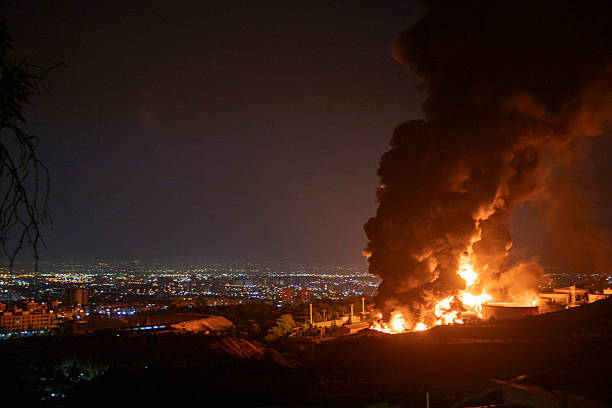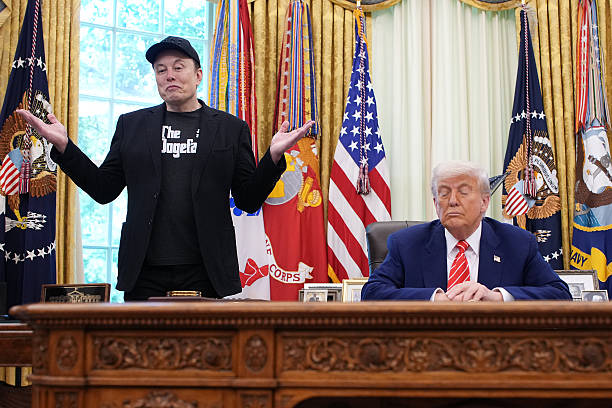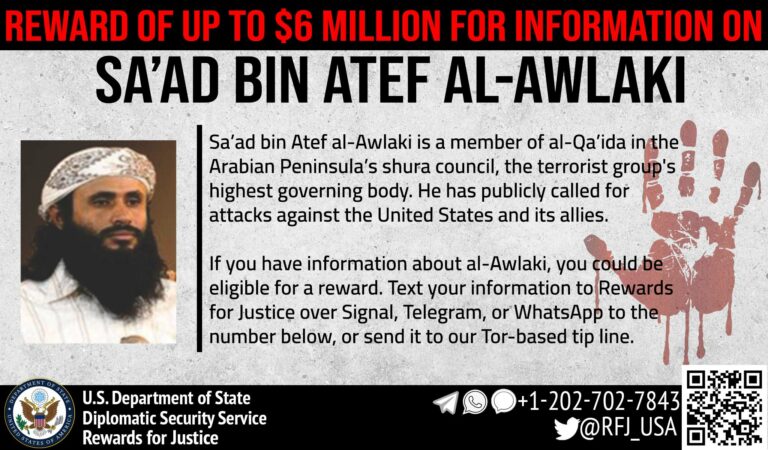Trump Shifts Tone on Iran, Warns Tehran Residents to Evacuate Amid Rising Tensions
President Trump escalated U.S. rhetoric against Iran, urging Tehran's evacuation and signaling potential military support for Israel amid rising tensions over Iran’s nuclear program.
.jpg) President Trump Signs Executive Orders in the Oval Office
President Trump Signs Executive Orders in the Oval OfficePresident Donald Trump on Monday shifted from suggesting a nuclear deal with Iran was still “achievable” to urging the 9.5 million residents of Tehran to evacuate immediately, citing rising threats to regional stability. The move came as Trump abruptly cut short his visit to the Group of Seven summit in the Canadian Rockies to return to Washington for urgent national security meetings.
Trump landed at the White House early Tuesday as tensions between Israel and Iran intensified. Following five days of Israeli missile strikes that have inflicted substantial damage on Iran, Israeli officials are signaling that they are close to being able to permanently cripple Tehran’s nuclear infrastructure — provided they receive additional support from the United States.
Trump, speaking aboard Air Force One, reaffirmed his hardline stance. “Iran cannot have a nuclear weapon, it’s very simple,” he said. He criticized Iranian leaders for failing to reach a deal and indicated diminishing interest in continued diplomatic engagement. “They should have done the deal. I told them, do the deal. So I don’t know. I’m not too much in the mood to negotiate,” he added.
Iran has consistently claimed that its nuclear program serves peaceful purposes. U.S. intelligence agencies have assessed that Tehran is not actively pursuing nuclear weapons, a position echoed in testimony by National Intelligence Director Tulsi Gabbard earlier this year. Trump dismissed this assessment outright, stating, “I don’t care what she said. I think they were very close to having it.”
The White House has been repositioning military assets in the region, including warships and aircraft, in anticipation of further escalation. This strategic shift appears to support what administration officials are calling a “defensive posture” with the possibility of deeper involvement should conditions deteriorate.
While at the G7, Trump’s sudden exit raised immediate questions. The White House clarified that the early departure was necessitated by the growing crisis. On social media, Trump reiterated his uncompromising message: “Simply stated, IRAN CAN NOT HAVE A NUCLEAR WEAPON. I said it over and over again! Everyone should immediately evacuate Tehran!”
Asked to clarify his call for evacuation, Trump told reporters, “I just want people to be safe.” He also refuted claims made by French President Emmanuel Macron that the U.S. was working toward a ceasefire. “We’re looking at better than a ceasefire. We’re not looking for a ceasefire,” Trump said, adding, “Macron is a nice guy, but he doesn’t get it right too often.”
Despite signaling a readiness to escalate, Trump left open a door for potential diplomacy, mentioning Vice President JD Vance and special envoy Steve Witkoff as possible emissaries for future talks with Tehran.
Meanwhile, Israeli officials claim their ongoing offensive has severely damaged Iran’s air defenses and opened the possibility of broader strikes. Prime Minister Benjamin Netanyahu declared that Israeli operations would continue until Iran’s nuclear and ballistic missile capabilities are eliminated. However, key targets, including the Fordo uranium enrichment facility buried deep underground, remain intact.
To destroy the Fordo site, Israel would require the GBU-57 Massive Ordnance Penetrator — a 30,000-pound bomb that can only be delivered by the U.S. B-2 stealth bomber. Israel does not possess this capability and is seeking American assistance.
In retaliation, some of Iran’s missile strikes have penetrated Israeli defenses, causing fatalities. Still, Israeli officials maintain confidence in their strategic advantage.
Defense Secretary Pete Hegseth appeared on Fox News to emphasize that Trump remains committed to a diplomatic solution, stating, “What you’re watching in real time is peace through strength and America first.” He reiterated that the administration is “postured defensively” and still hopes for a peaceful resolution.
During a bilateral meeting with Canadian Prime Minister Mark Carney, Trump again pushed for immediate Iranian engagement in talks. “They should talk, and they should talk immediately,” he said. “I’d say Iran is not winning this war.”
Despite calls from Israeli officials for a more aggressive approach — including a recent plan to assassinate Supreme Leader Ayatollah Ali Khamenei — Trump reportedly rejected the proposal, according to a U.S. official speaking on condition of anonymity.
Domestically, Trump is facing growing criticism from within his own base. Prominent figures such as Tucker Carlson, Rep. Marjorie Taylor Greene, and Turning Point USA’s Charlie Kirk have warned against deeper U.S. entanglement, citing Trump’s prior commitments to avoid prolonged foreign conflicts. Trump fired back at Carlson, writing, “Somebody please explain to kooky Tucker Carlson that, ‘IRAN CAN NOT HAVE A NUCLEAR WEAPON!’”
Others in Trump’s camp, including Sen. Lindsey Graham, are urging a more assertive approach. Graham called on Trump to “go all-in” to help Israel eliminate Iran’s nuclear capabilities.
As the situation rapidly evolves, Trump continues to face pressure to define a clear path forward — balancing the risks of military escalation with the ongoing push for a nuclear agreement.







Conversation